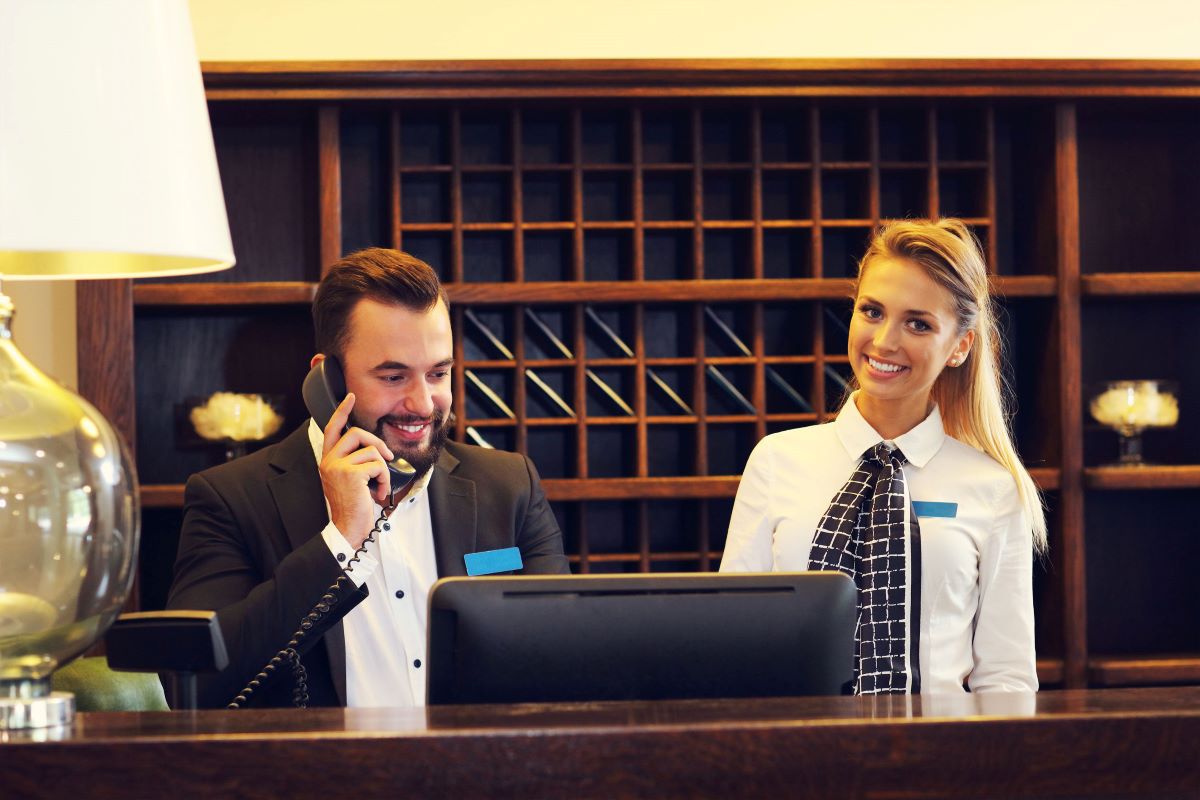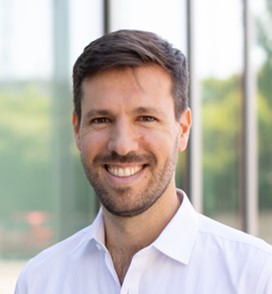The hard-hit hospitality industry leans on tech solutions to assist employees with mental well-being
Restaurant and hotel industries help frontline workers adapt.

The high-pressure hospitality industry was already struggling with employee mental health issues. The hours are long, the pay can be low, you spend a lot of time on your feet, and virtually all of the work involves engaging with customers all the time.
And then the pandemic hit. People who felt stressed out by their jobs now were feeling lucky to have them. The U.S. Bureau of Labor Statistics reported that only 53 percent of the jobs lost in the second quarter of 2020 were recovered by December. In that same month, it found food service and drinking locations employed 2.5 million fewer people than before the pandemic shutdown began.

Even when workers were able to return over the summer, they faced a new wave of safety regulations and belligerent customers that only exacerbated the mental toll. Lower-income workers, such as those who work in the hospitality industry, reported the highest negative mental health impact from pandemic-induced stress.
“While COVID-19 has taken a toll on everyone’s mental well-being in one way or another, the effects of the pandemic have especially tested those working in hospitality, which has been one of the hardest-hit industries,” says Christy Sinnott, senior VP of talent management for Hyatt, the Chicago-based hotel giant, which has nearly 1,000 properties worldwide and 100,000 employees.

Complicating things is that 80% of hospitality workers are on the frontline, so access to resources via computer isn’t convenient for them, notes Daniel Sztutwojner, the chief customer officer at workforce communications platform Beekeeper. As a result, finding alternative methods to reach this portion of the workforce is critical. So how are hotels and restaurants helping employees with their mental health burdens? The wellness toolkit varies. It includes empowerment. It includes technology, from scheduling and social media apps to digital mental health programs.

Empowering employees
Empowered workers are more likely to get help when they need it when communications are digitized between employers, employees, and team members. Digital access to resources also helps employees who are learning new safety protocols. The National Restaurant Association offers several free apps for restaurant industry employees, covering issues like mental health and substance abuse and provide telehealth services.
When restaurants across the country first shut down across the country a year ago, employers jumped to the tech they already had to keep open communications with employees. For example, Brinker International, the company that owns Chili’s Grill & Bar and Maggiano’s Little Italy and employs 60,000 workers, used the Hot Schedules platform to text with employees and answer questions. It also taps into its EAP and communicates to employees that mental health services are available not only to them but also to their family members. Their EAP provider also offers free self-care apps.

“Every team member and their household family members have access to free, unlimited, and confidential consultations with our EAP,” says Brinker Chief People and Administrative Officer Rick Badgley. “All team members also have access to digital resources such as self-care apps to improve wellness habits, and online programs to help with emotional well-being.”
Hyatt announces new mental health tech
Hyatt’s practice of using tech to support employees continues. Last March, the company’s corporate workforce went remote. Three months later, with no end to the pandemic in sight, it laid off 1,300 global corporate employees.
To keep the remaining employees updated and supported, Hyatt launched an internal app called Hyatt Check-in. “This past year was filled with difficult decisions and significant impacts on our business and our society,” Sinnott says. “It challenged all colleagues, but also bonded us together—we found new levels of human connection with each other.”
The hotel giant began offering Headspace’s meditation app for free to employees in January 2020. Its EAP offers virtual counseling sessions to U.S. employees and behavioral health visits through a telemedicine provider for health plan participants.
In the effort to keep frontline employees and guests at a safe distance, Hyatt uses digital amenities at 500 of its properties via its World of Hyatt app. The app allows contactless front desk access and even a “knock-and-go” room service procedure with digital food ordering.
A daily survey offered to employees via mobile device or desktop measures their well-being at the beginning of a shift. This enables managers to address issues and make adjustments in real-time, says Sinnott.
On February 25th, Hyatt announced it’s adding a new app to its employee resources called Hyatt Well-Check. Developed with the help of psychiatrists, it aims to track employee mental health with voluntary regular check-ins. The assessments lead to customizable resources to support mental well-being.
“By encouraging interaction with the tool and dialogue around it, it is our goal to bring awareness to mental well-being challenges and help normalize the topic as part of Hyatt’s culture,” Sinnott says.
COMMENT
Ragan.com Daily Headlines
RECOMMENDED READING
Tags: hospitality industry, Hyatt, mental health, tech

